50 Geordie Phrases You Need to Know Before Visiting Newcastle
Newcastle, a city rich in history and culture, is known for much more than just the famous Tyne Bridge and St. James’ Park (Howay the Lads). It’s the birthplace of some iconic Geordie British staples that you might not know about, like Lucozade, which was originally produced in Newcastle. The city is also home to Greggs, the beloved bakery chain that started here and has become a national treasure. Newcastle is a city of firsts, with Fenwick’s department store being one of the first of its kind, and it’s also the setting of the legendary British TV show Auf Wiedersehen, Pet.
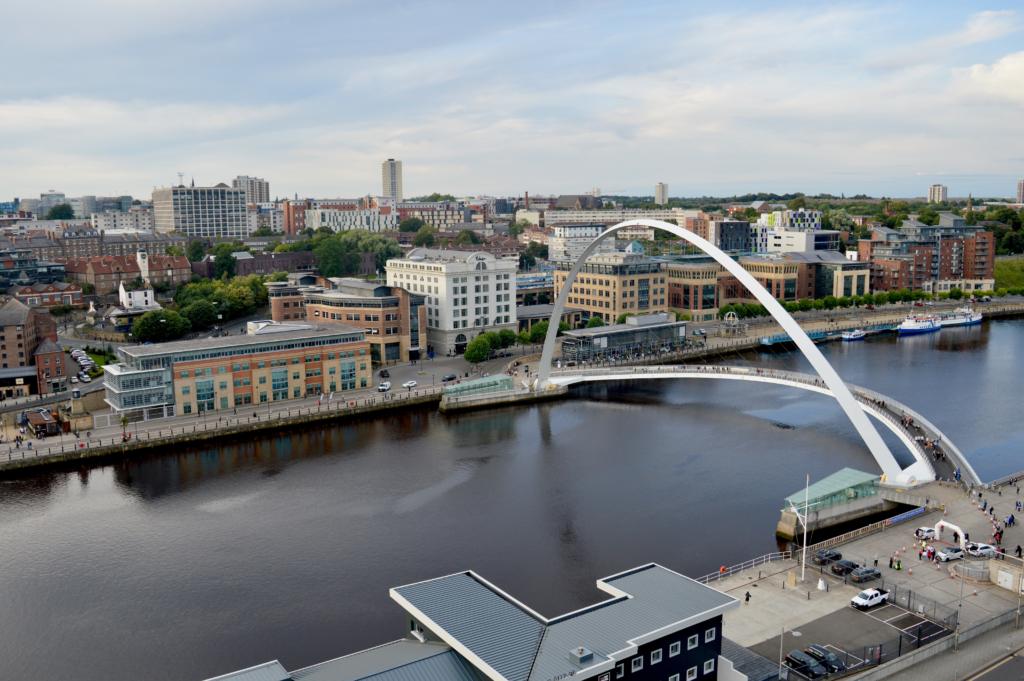
This vibrant city is celebrated for its warmth, hospitality, and, of course, its unique Geordie dialect. If you’re planning a visit, learning a few key Geordie phrases will not only help you feel at home but also give you a deeper understanding of the local culture. The Geordie dialect can be a bit tricky for outsiders, but with these 50 essential phrases, you’ll be ready to navigate Newcastle like a true local!

50 Geordie Phrases You Need to Know Before Visiting Newcastle
1. Whey Aye, Man!
Translation: Yes, of course!
This is probably the most iconic Geordie phrase, and no visit to Newcastle would be complete without hearing or using it. It’s a phrase full of enthusiasm and is used to express agreement, excitement, or support. Think of it as a more animated way of saying “definitely” or “absolutely!” in standard English.
Whether you’re in a pub and someone asks if you fancy a pint or at a football match supporting Newcastle United, a well timed “Whey Aye, Man!” will show that you’re fully on board. The phrase embodies the positive and upbeat spirit of the Geordie people, and you’ll often hear it being shouted with joy or as a friendly exclamation in conversation.
2. Canny
Translation: Good, nice, or pleasant
“Canny” is one of the most versatile Geordie phrases and can describe anything from a good person to a tasty meal. If something’s described as “canny,” it means it’s generally quite good or nice. You might hear “That’s a canny pint!” when someone is enjoying their drink or “She’s a canny lass” to describe a friendly person. It can also be used to say “canny good,” which just emphasises that something is particularly nice.
It’s a word you’ll hear frequently, and using it will make you sound like you belong in Newcastle.
3. Howay
Translation: Come on! / Let’s go!
“Howay” is a call to action and is one of the most recognisable Geordie phrases. It can express encouragement, impatience, or excitement. You’ll hear it in a variety of settings, from sports matches (“Howay the lads!” to cheer on Newcastle United) to casual conversations (“Howay, let’s gan doon the toon!” meaning “Let’s go into town!”).
Depending on the tone, it can be friendly or a little more urgent, but it’s always used to motivate someone to get moving or join in on something.
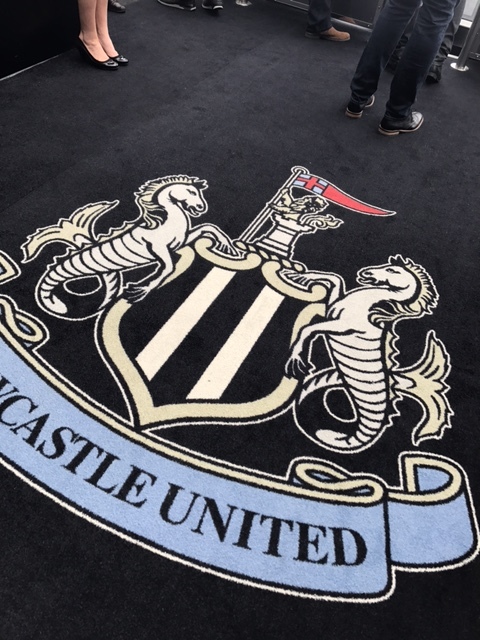
4. Marra
Translation: Mate or friend
Geordies use the term “marra” to describe a close friend or mate, highlighting the friendliness of the Geordie culture. If someone calls you “marra,” consider it a term of endearment.
It’s more common in some parts of the North East than others, but it’s always used to refer to a close companion, whether you’ve known them for years or just hit it off over a pint at the pub.
5. Bonny Lad/Lass
Translation: Good-looking boy/girl
“Bonny” is an old English word for pretty or attractive, and in Newcastle, it’s commonly used to describe someone who is good looking or lovely. Whether someone refers to you as a “bonny lass” or a “bonny lad,” take it as a compliment!
Beyond appearance, it can also mean someone is sweet or kind. You’ll hear Geordies using it fondly in conversation with family or friends.
6. Gan Canny
Translation: Go carefully
If a Geordie tells you to “gan canny,” they’re wishing you well, telling you to be careful, or advising you to take things slowly. It’s often used as a farewell, much like “take care.”
Whether you’re heading out for a night or embarking on a long drive, someone might tell you to “gan canny” to remind you to stay safe and be cautious.
7. Bairn
Translation: Child
“Bairn” is the Geordie word for a child and is used throughout the North East of England. You’ll often hear parents and grandparents referring to their children as “bairns,” as in “The bairns are playing outside.”
It’s a warm and affectionate term that reflects the family oriented culture of Newcastle. It’s one of those words that helps you feel the close knit community spirit when visiting the region.
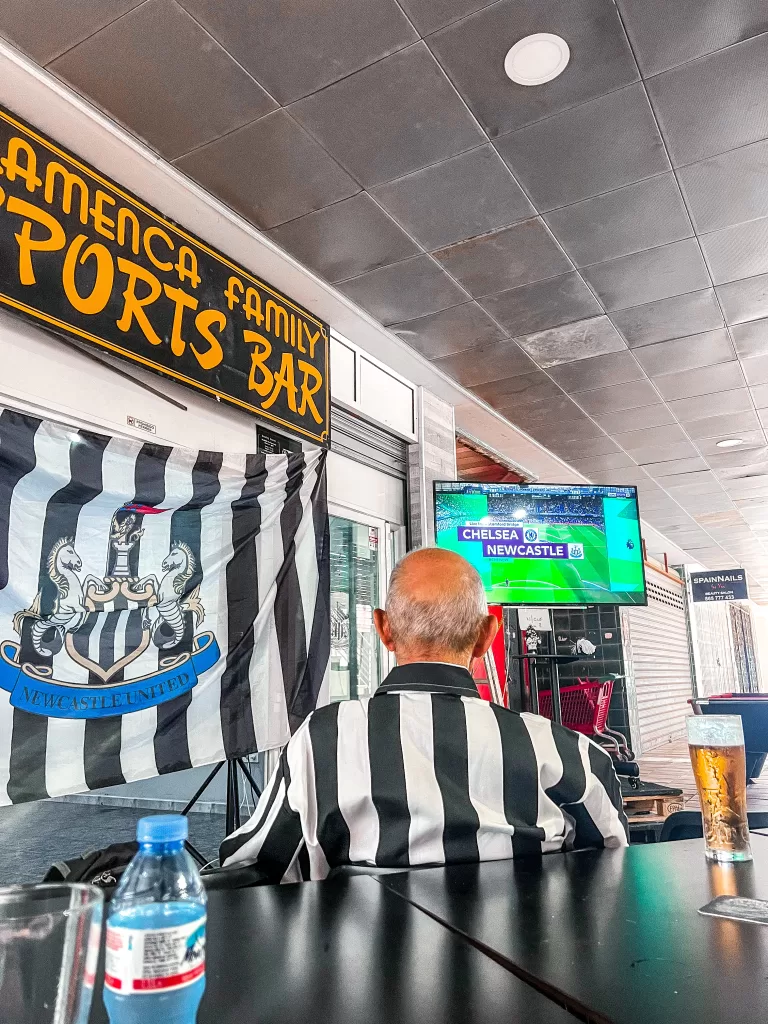
8. Clarts
Translation: Mud or dirt
If someone or something is covered in “clarts,” it means they’re dirty or muddy. For example, “Mind, you’re covered in clarts!” is a way of saying that you’re filthy, often after a rainy or muddy day.
It’s a common phrase in a region where rain and muddy paths can leave you a bit dirtier than you expected. So, if you’re heading for a walk in the countryside, be prepared for some “clarts” on your boots.
9. Haddaway
Translation: Get away / You’re joking!
“Haddaway” is an expression of disbelief or surprise, similar to saying “No way!” or “You must be joking!” in other parts of the UK. If someone says something unbelievable, a Geordie might respond with “Haddaway, man!” to express skepticism. It’s a fun and slightly cheeky way to let someone know you’re not buying what they’re saying.
10. Bobby Dazzler
Translation: Someone or something that’s really impressive
A “bobby dazzler” is a person or object that stands out for being remarkable or impressive. Whether it’s a well dressed individual or a stunning new car, Geordies use this phrase to express admiration. It’s often used to describe something flashy or particularly special, and it adds a touch of Northern charm to compliments.
11. Netty
Translation: Toilet
“Netty” is the Geordie word for a toilet, and it’s used by locals instead of more common terms like “bathroom” or “restroom.” So if you’re out and about in Newcastle and need to use the facilities, asking where the “netty” is will certainly earn you some local points.
12. Nee Bother
Translation: No problem
When a Geordie says “nee bother,” it’s their way of saying “No worries” or “No problem.” It’s a relaxed, friendly response when someone thanks you or asks for a favour. You’ll hear it often in Newcastle when locals are offering to help or letting you know that something isn’t an issue.
13. Pure Dead Brilliant
Translation: Absolutely fantastic
This phrase is used to describe something that is truly amazing or outstanding. Whether you’ve just had a great meal or experienced something incredible, saying “pure dead brilliant” shows just how impressed you are. It’s a bit of a hyperbole but one that’s packed with enthusiasm.
14. Alreet?
Translation: Are you all right? / How are you?
“Alreet” is a common Geordie greeting, short for “Are you all right?” It’s the equivalent of “How are you?” and is used as a friendly way to check in or say hello. You’ll hear it a lot when walking around Newcastle, and a simple “Alreet” back will do just fine!
15. Scran
Translation: Food
“Scran” is a popular word for food in Newcastle, often used in the context of a good meal. If someone says, “Let’s go get some scran,” they’re suggesting it’s time to eat. It’s a casual term you’ll hear at pubs, cafes, and restaurants across the city.
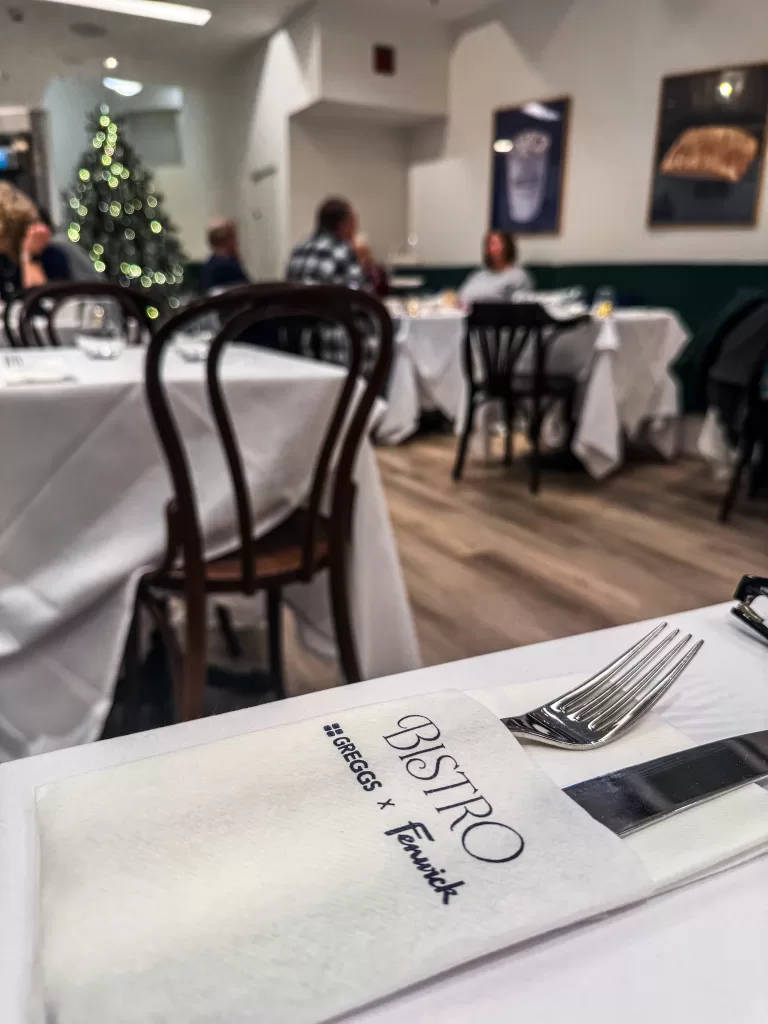
16. Chuffed
Translation: Pleased or happy
If you’re “chuffed,” you’re really pleased with something. It’s used when someone is happy with an outcome or feeling proud of something, like “I’m chuffed to bits with my new job!” It’s a cheerful word that perfectly captures that feeling of contentment.
Related Newcastle Reads:
17. Radgie
Translation: Someone who is angry or a troublemaker
A “radgie” is someone who’s acting out of control or being aggressive. If someone is causing a scene or behaving badly, you might hear a Geordie refer to them as a “radgie.” It’s often used to describe someone who’s angry or picking a fight.
18. Geet Wallah
Translation: Very big or large
When something is described as “geet wallah,” it means it’s extremely large. Whether it’s a meal portion or a giant building, this phrase is used to emphasise the size of something.
19. Divvent
Translation: Don’t
“Divvent” is the Geordie way of saying “don’t.” For example, “Divvent dee that!” means “Don’t do that!” It’s a useful word to know, especially if you’re trying to give someone advice or warn them about something.
20. Hoy
Translation: Throw
“Hoy” means to throw something, and it’s a common word in the Geordie dialect. Whether you’re asking someone to “hoy us the remote” or jokingly saying “I’m gonna hoy it away,” it’s a versatile verb that you’ll hear often in Newcastle conversations.
21. Lush
Translation: Lovely or beautiful
In Newcastle, “lush” is used to describe anything that’s particularly nice, beautiful, or enjoyable. Whether it’s the scenery, a meal, or even a person, you’ll hear Geordies say something is “lush” when it’s impressive or delightful. For example, “That meal was lush” or “What a lush day!” It’s a versatile compliment that adds warmth to everyday conversations.
22. Mint
Translation: Excellent or cool
“Mint” is another common term used to describe something that’s particularly good or cool. If someone tells you something is “mint,” it means it’s of high quality or they’re really impressed by it. You might hear, “That car is mint!” or “The weather is mint today!” It’s a simple yet impactful way of expressing approval or admiration.
23. Spelk
Translation: A splinter
If you’ve ever had a small piece of wood stuck in your skin, Geordies would call it a “spelk.” This is a very specific term that might come in handy if you’re doing some DIY or walking through the countryside and pick up a tiny, annoying splinter. Someone might say, “I’ve got a spelk in me finger!”
24. Canny Bag o’ Tuds
Translation: A large bag of potatoes
This playful Geordie phrase refers to a big bag of potatoes, often heard in local markets or shops. “Canny” means good, and “tuds” is a regional term for potatoes, so a “canny bag o’ tuds” means a sizeable, decent bag of spuds. It’s a fun phrase that highlights the Geordie love for good food and humour.
25. Geet
Translation: Very
“Geet” is used as an intensifier to mean “very” or “really.” For instance, if something is “geet big,” it means it’s really large. It’s often used for emphasis in Geordie speech, and you’ll hear it in conversations where someone wants to stress how big, good, or important something is.

26. Giz a Clue
Translation: Give me a hint
If you’re struggling with something and need a little help, you might say, “Giz a clue!” It’s a Geordie way of asking for a hint or some guidance. Whether you’re working on a puzzle or trying to remember something, this phrase can come in handy.
27. Fettle
Translation: Condition or fix
“Fettle” can refer to the condition of something or the act of fixing it. If something is in “good fettle,” it’s in great shape. Alternatively, if something needs repairing, a Geordie might say, “I’ll fettle it,” meaning they’ll fix or sort it out.
28. Nesh
Translation: Someone who feels the cold easily
If you’re always chilly, even when it’s not that cold, you might be called “nesh.” It’s a term used to describe someone who’s sensitive to cold weather. For example, “She’s nesh, she’s always got a jumper on.”
29. Hacky
Translation: Dirty
“Hacky” is another word for dirty or grubby, often used to describe someone who looks unkempt or messy. If you’ve been outside in the mud or haven’t washed up after a day of hard work, someone might say, “You’re hacky!”
30. Belta
Translation: Amazing or fantastic
If something is “belta,” it’s absolutely fantastic. It’s a word used to express that something is really impressive or excellent. Whether it’s a football goal or a great night out, if it’s “belta,” it’s something to rave about.
31. Howay the Lads!
Translation: Come on, the lads!
This phrase is most commonly heard at football matches in support of Newcastle United. It’s an enthusiastic rallying cry to encourage the team, but you might also hear it used in everyday situations to express encouragement or support. It’s a true Geordie classic that encapsulates the spirit of community and pride in the city’s sports teams.
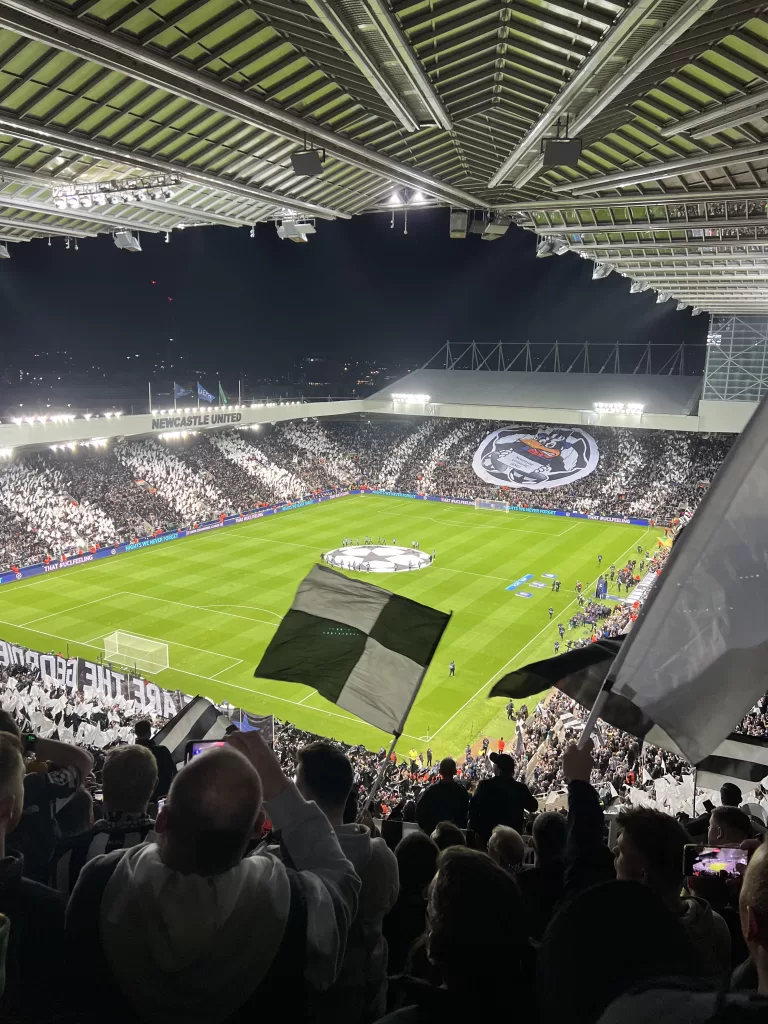
32. Blather
Translation: Chatter or talk
A “blather” is a long conversation or a bit of gossip. If someone is having a good chat, you might hear someone say, “They’re having a blather.” It’s a casual way to describe a friendly conversation or catch up.
33. Gaff
Translation: House or home
In Geordie slang, your “gaff” is your home. If someone says, “Come over to my gaff,” they’re inviting you to their house. It’s an informal way of talking about where you live.
34. Wor
Translation: Our
“Wor” is the Geordie version of “our” and is often used to refer to family members or close friends. For example, “Wor lass” means “our girl” or “my girlfriend/wife.” It’s a term that reinforces the close, communal spirit of Geordies.
35. Plodge
Translation: To wade through water
If you’re walking through water, especially when it’s a bit splashy or muddy, you’re “plodging.” It’s a word that’s often used to describe walking through shallow water or puddles. You might hear, “We were plodging in the sea!”
36. Knack
Translation: To hurt
“Knack” is used to describe pain or injury. If you’ve hurt yourself, you might say, “I’ve knacked me arm.” It’s commonly used to refer to minor injuries but can also describe more serious pain.
37. Crack On
Translation: Keep going or continue
“Crack on” is used to encourage someone to keep going or to carry on with what they’re doing. Whether you’re working on a project or heading out on an adventure, “crack on” is a way of saying, “Keep at it!”
38. Gannin’ Yem
Translation: Going home
When Geordies say they’re “gannin’ yem,” it means they’re going home. “Yem” is the local word for home, and it’s often heard at the end of a night out or after a long day. For example, “I’m gannin’ yem after the match.”
39. Paggered
Translation: Exhausted
If you’re absolutely worn out, you’re “paggered.” This word is used to describe extreme tiredness after a long day or strenuous activity. Someone might say, “I’m paggered after that hike!”
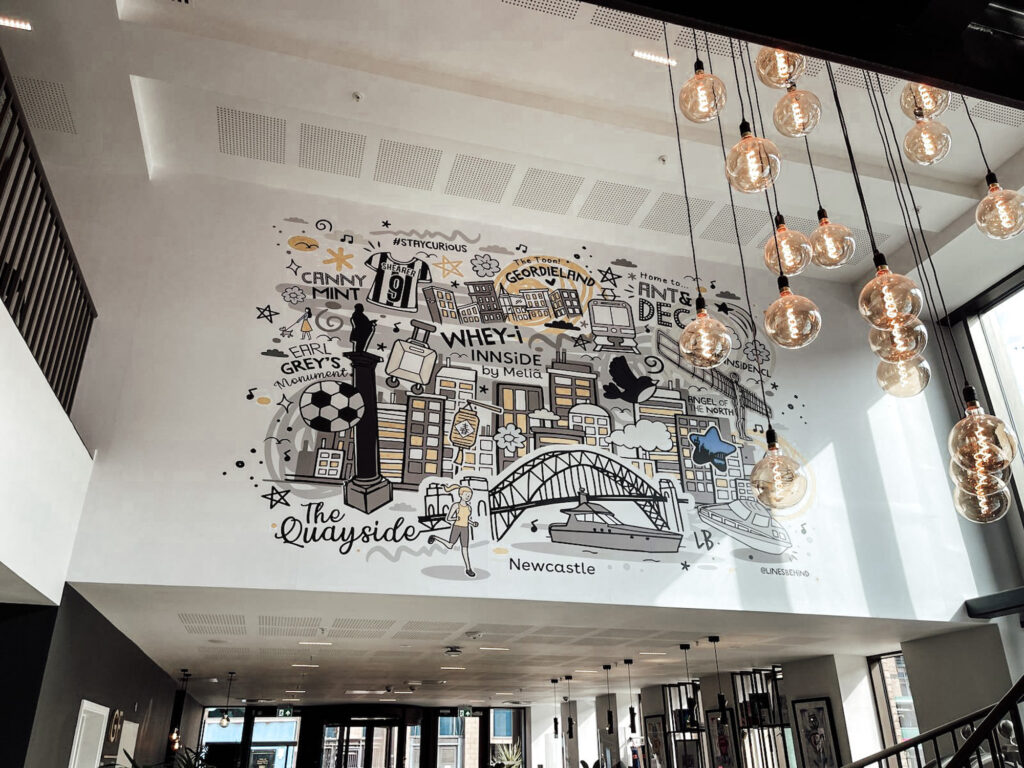
40. Skint
Translation: Broke or without money
When someone is “skint,” they’re out of money. If you’ve spent a bit too much on a night out or shopping spree, you might say, “I’m skint until payday!”
41. Eee, Man
Translation: Expression of surprise
“Eee, man” is a classic Geordie exclamation used to express surprise, frustration, or disbelief. You’ll hear it in various situations, like when something unexpected happens or someone is telling an unbelievable story. It’s a versatile phrase that adds character to Geordie speech.
42. Mortal
Translation: Very drunk
If someone is “mortal,” they’ve had far too much to drink. This phrase is commonly used during a night out when someone has gone a bit overboard with the alcohol. You might hear, “He was mortal last night!”
43. Doon the Toon
Translation: Going into the town centre
When Geordies say they’re going “doon the toon,” it means they’re heading into Newcastle city centre. Whether it’s for a shopping trip, a night out, or just to meet friends, “doon the toon” is a staple phrase you’ll hear often in Newcastle.
44. Cush
Translation: Easy or simple
If something is “cush,” it means it’s really easy to do or accomplish. Whether it’s an easy task at work or a simple solution to a problem, Geordies will say, “It’s cush” to describe how simple it is.
45. Jarra
Translation: Jarrow, a town near Newcastle
“Jarra” is the Geordie way of referring to the town of Jarrow, located near Newcastle. It’s a local term that you’ll hear when people are talking about this historic town, famous for its shipbuilding heritage.
46. Baltic
Translation: Extremely cold
When the weather is freezing, Geordies will describe it as “baltic.” If someone tells you, “It’s baltic out there,” you know it’s time to bundle up! It’s used to emphasise just how cold it is, especially during the winter months.
47. Lass
Translation: Girl
“Lass” is a common Geordie term for a girl or young woman. It’s often used affectionately, like “She’s a canny lass,” meaning she’s a nice girl. It’s one of those terms you’ll hear frequently in Newcastle.
48. Minted
Translation: Wealthy
If someone is “minted,” they’re rich or well off. It’s a casual term used to describe someone with a lot of money, and you might hear it in conversations about successful people or big spenders.
49. Tret
Translation: Treated
“Tret” is the Geordie past tense for “treat,” so if you’ve been taken out for dinner or given a gift, you’d say, “I’ve been tret well!” It’s a regional twist on the word “treated.”
50. Gan Radgie
Translation: Go crazy
When someone is “gannin radgie,” they’re losing their temper or going wild. It’s a phrase used to describe someone who’s acting out of control, often in anger. For example, “He gans radgie when his team loses.”
Whether you’re heading to Newcastle for a football match, the famous nightlife, or just to explore this vibrant city, learning these Geordie phrases will help you feel like a local in no time. The Geordie dialect is filled with charm and character, and understanding these key terms will give you an authentic taste of the city’s rich culture. So, next time you’re in Newcastle, don’t be afraid to throw out a “Whey Aye, Man!”

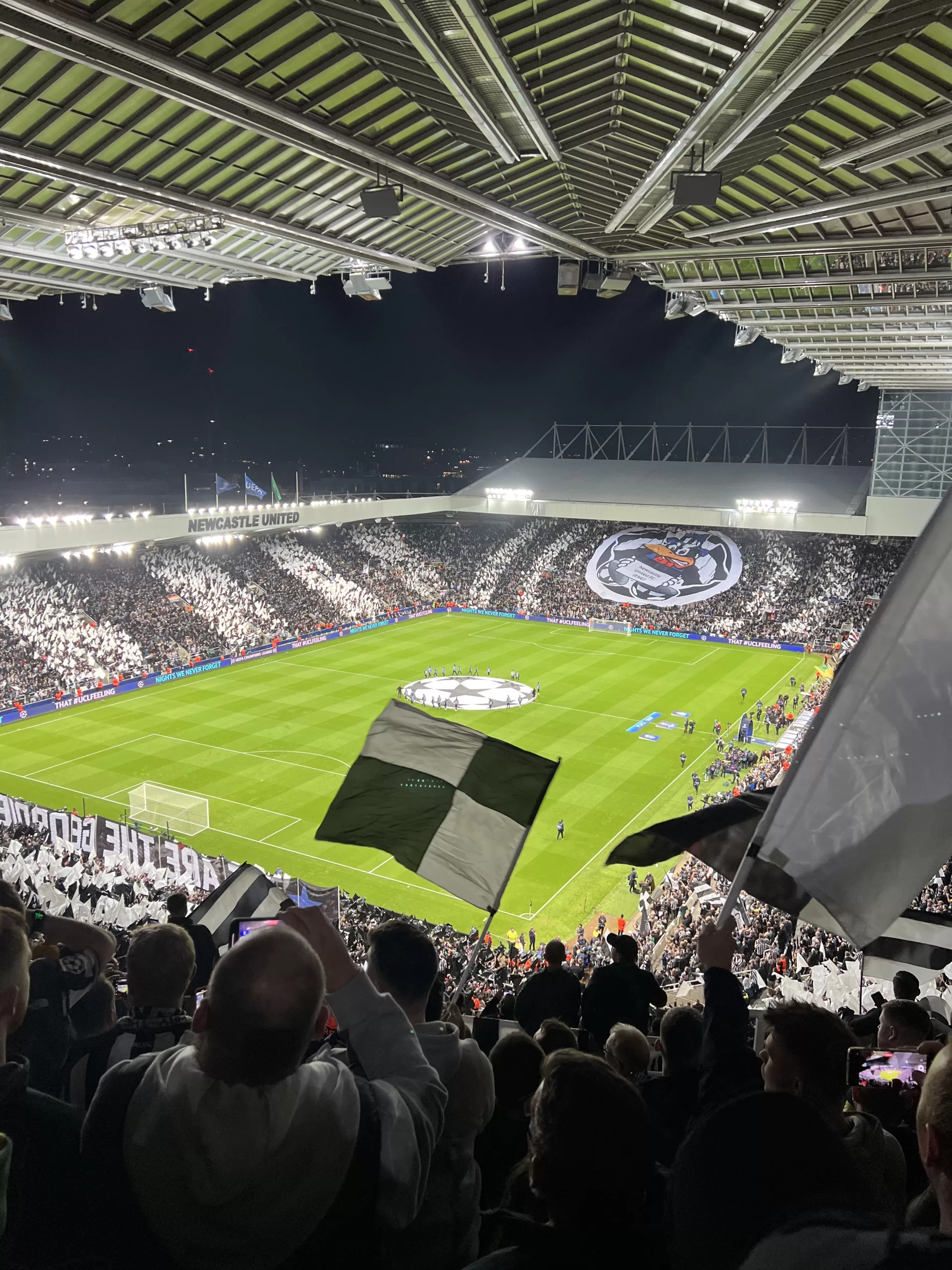

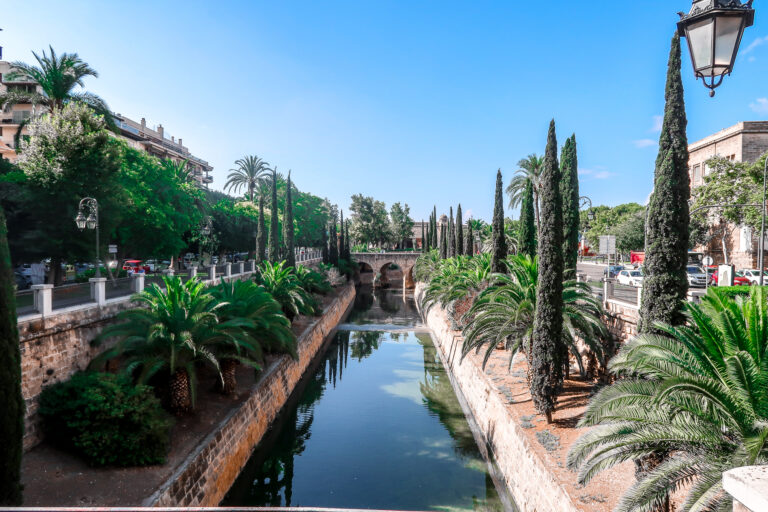
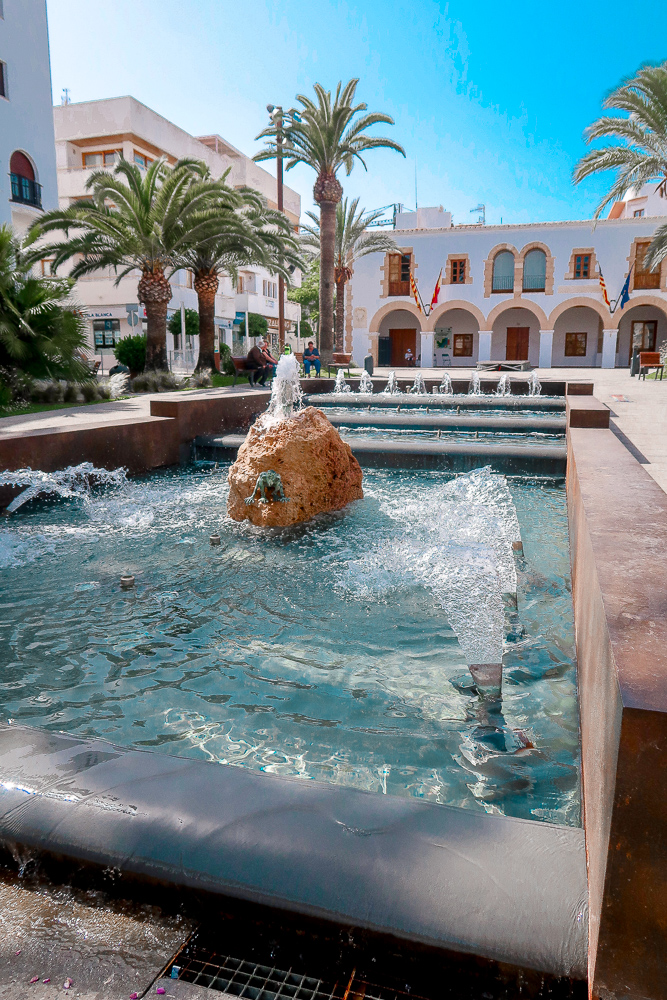
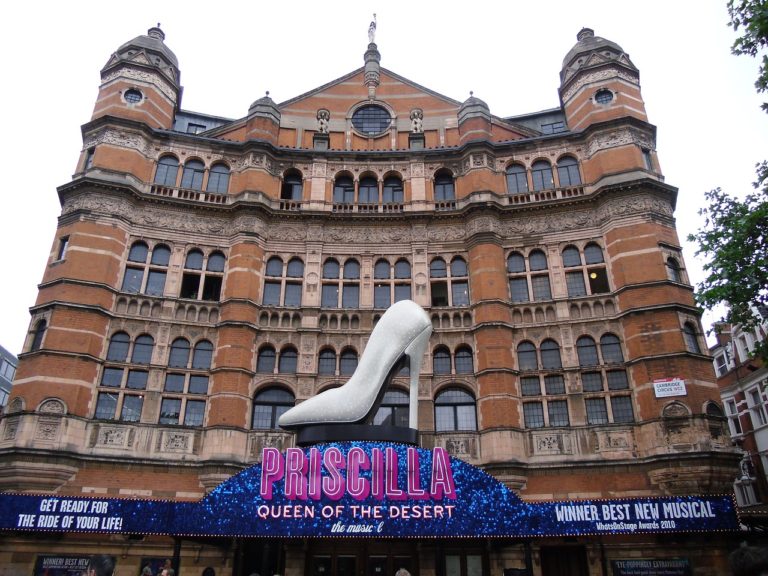

Amazing i’m downloading this!!
It’s proper canny I love it!!!
Amazing i’m downloading this!!
It’s proper canny I love it!!!
Amazing i’m downloading this!!
It’s proper canny I love it!!!
Amazing i’m downloading this!!
It’s proper canny I love it!!!
Amazing i’m downloading this!!
It’s proper canny I love it!!!
Amazing i’m downloading this!!
It’s proper canny I love it!!!
Amazing i’m downloading this!!
It’s proper canny I love it!!!
Amazing i’m downloading this!!
It’s proper canny I love it!!!
Amazing i’m downloading this!!
It’s proper canny I love it!!!
Amazing i’m downloading this!!
It’s proper canny I love it!!!
Amazing i’m downloading this!!
It’s proper canny I love it!!!